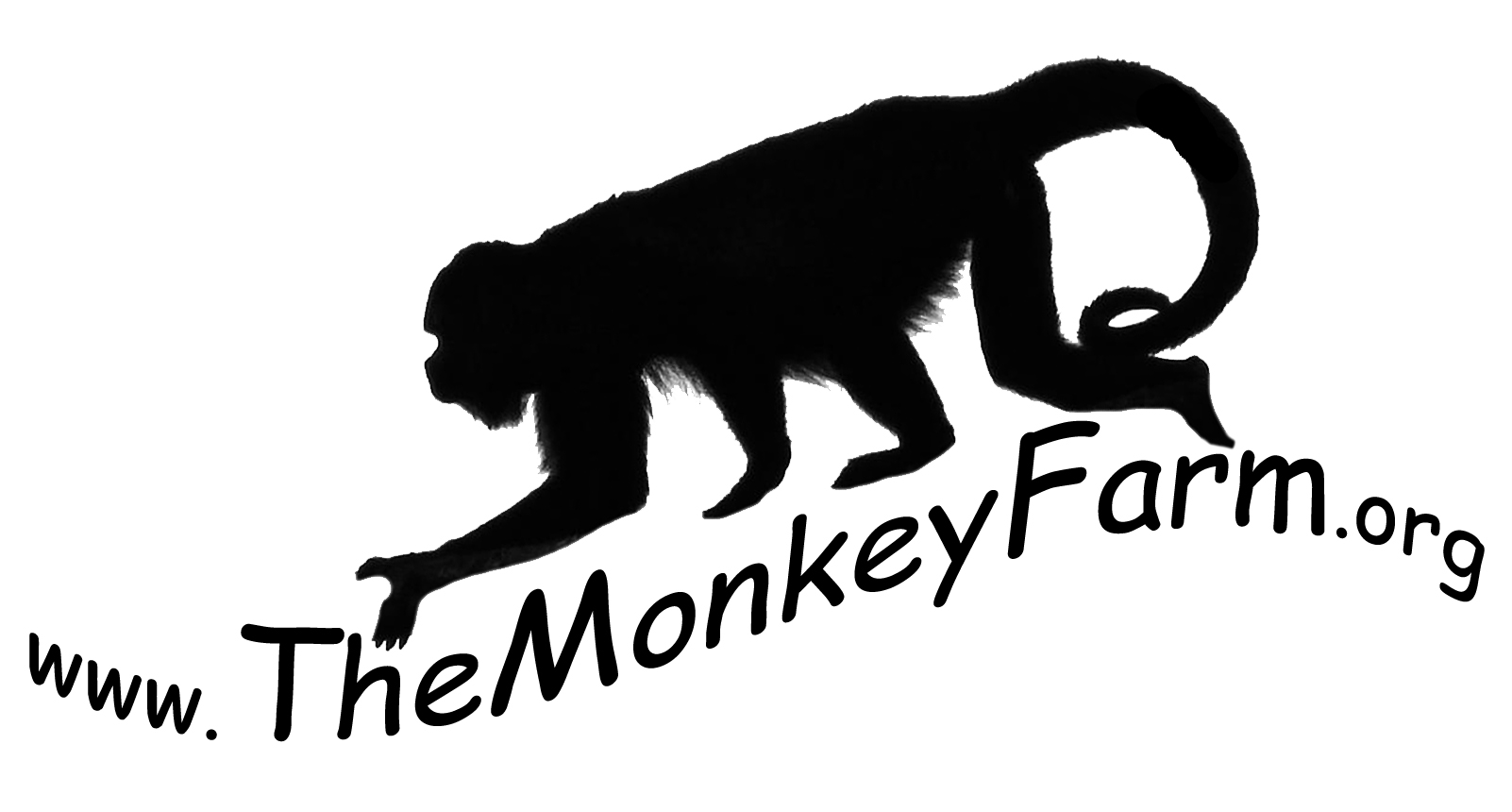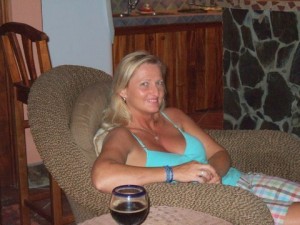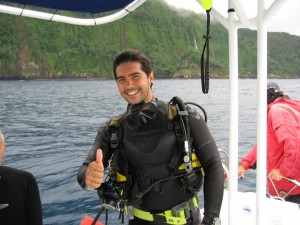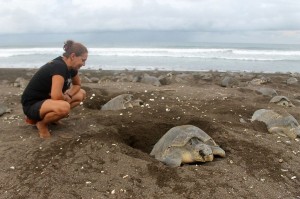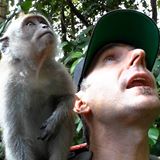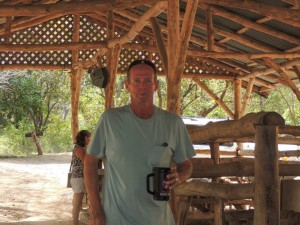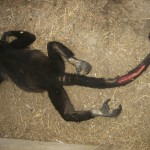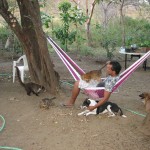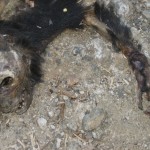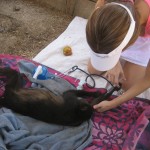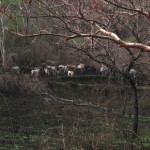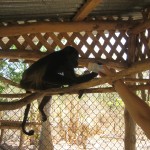
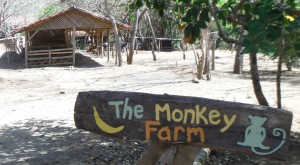 The Monkey Farm is in its infancy, (started in December of 2013) but is in the process of becoming an organic sustainable farm where volunteers from all over the world come and live at the farm and grow the food to feed themselves using permaculture methods, care for the farm animals which in turn provide food for them (eggs, milk, meat), and care for the monkeys and wildlife that we rescue.
The Monkey Farm is in its infancy, (started in December of 2013) but is in the process of becoming an organic sustainable farm where volunteers from all over the world come and live at the farm and grow the food to feed themselves using permaculture methods, care for the farm animals which in turn provide food for them (eggs, milk, meat), and care for the monkeys and wildlife that we rescue.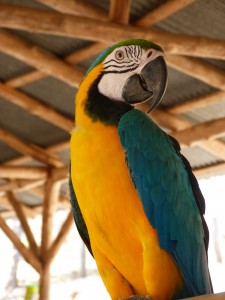 The Monkey Farm was established in December 2013 by Vicki Conley, a former business-owner from the U.S. who is now learning to live off the land. “I’ve had a home in Costa Rica since 1999 and when I saw this farm, walking distance from the beach in Playa Ocotal, I just fell in love with it. After years of searching, I decided it was the absolute perfect place for my dream of a self-sufficient sustainable farm to practice permaculture and eventually get off the grid, plus continue with the wildlife rescue I had been doing for many years” she explains.
The Monkey Farm was established in December 2013 by Vicki Conley, a former business-owner from the U.S. who is now learning to live off the land. “I’ve had a home in Costa Rica since 1999 and when I saw this farm, walking distance from the beach in Playa Ocotal, I just fell in love with it. After years of searching, I decided it was the absolute perfect place for my dream of a self-sufficient sustainable farm to practice permaculture and eventually get off the grid, plus continue with the wildlife rescue I had been doing for many years” she explains.
Now, volunteers come from all over the world to live and work on the farm and share their skills and knowledge with other volunteers while in an idyllic tropical environment. International volunteers connect with the farm via websites such as www.wwoof.net, which list organic farms in which volunteers can go live and work for free. Our live-in volunteers must commit to stay at least a month.
We also LOVE our local volunteers who come and help for a few hours whenever they have time. Our local volunteers have been invaluable in helping with repairs and special projects. If you are staying nearby, and would like to come and help us for a few hours, Contact us. We will set up a time to show you around and talk about what is needed and how you can help. Then, you’re free to come as you please whenever you have time.
It’s not only monkeys and wildlife we aim to help. We research and develop ideas that can be shared with the surrounding community. These solutions can be concepts such as aquaponics or forest gardening, helpful systems such as composting toilets and solar food dehydrators or beneficial superfoods such as Moringa, Noni, Soursop or Red Reishi mushrooms.
We are also planning classes on Permaculture, how to make fermented foods such as kombucha, yogurt and kefir, medicinal herbs and plants, how to make teas, food preservation such as canning, pickling, and dehydrating, etc. In addition, we are planning English classes for the locals so they can get better jobs.
The backbone of our operations is a constantly renewing team of volunteers. Our approach is very much based on hands-on learning and taking initiative. We wish to equip all of our volunteers with skills and understanding so that they are able to relay the torch to newcomers as well as represent the farm in the community.
We are a growing team of enthusiastic volunteers working together at The Monkey Farm to create a revolutionary “think outside the box” new model for how to run a monkey and wildlife rescue.
We have three types of volunteers. One type is the International volunteers who come from all over the world for a minimum of a month, and live and work on the farm.
We also have volunteers who live locally and come for a few hours when they have time and work on special projects or repairs.
Both these types of volunteers are invaluable in helping us reach our goals.
We also have our regular “staff” who are always onsite or nearby, the volunteers who work day-in and day-out to guide the course of the Monkey Farm.
Vicki is a former business-owner from the States who has been learning to live off the land on her lovely farm right near the beach. She is a laid back lady: great fun to work with. Humility is one of her biggest virtues. She enjoys horseback riding, dancing, boating, snorkeling and caring for animals.
Dr. Bermudez is a biologist specializing in the management of natural resources, who has also recently completed his studies in veterinary medicine and surgery. He is also a PADI Open Water Scuba instructor (OWSI) and dive master with over +3000 dives with experience in the management of marine resources.
“I have a major degree in loving nature, but I’m not a tree hugger (nevertheless I respect anyone who is). I like to think of myself as a scientist who is open minded to new ideas, but also as someone who thinks that these ideas mean very little if you are not part of the procedure, just a watcher.”
Denise is our volunteer coordinator, among many other things. She believes in the spirit and power of volunteer service and has worked with many other organizations. Her passion is sea turtle conservation work and she loves to lead turtle volunteer work and jungle night tours. She and her husband, Steven, are pet sitters in many exotic and remote locations.
Brad is very well versed in primate rescue. He has recently returned from a year long conservation world tour. He worked at a sanctuary in South Africa for rescued and orphaned Chacma Baboons and Vervet Monkeys. “I speak a few dialects of primate language” Brad says smiling. ”I then lived in Bali for six months getting to know the sacred monkey temple troops on the island, the Long Tailed Macaques”.
Brad has dreamed of building a sustainable monkey sanctuary and has been collecting plans and ideas for years. “This could be the beginning of a sanctuary revolution”, says Brad. He is pretty excited to be a part of our team and we’re just as excited to have him!
Steven is our rock! He is quiet and unassuming, but when there’s something to be built or a repair needed, Steven is a total MacGyver and is willing and able to fix or do anything! A former cattle rancher from Texas, Steven knows a lot about a lot of things, Thank God!
© Copyright 2014 The Monkey Farm
Our organic farm in Playa Ocotal, Guanacaste, Costa Rica is a natural habitat for both howler and white face monkeys, parrots and other wildlife. We understand what permaculture and sustainability are all about. Therefore, we welcome the monkeys and cherish them as part of the natural environment we live in.
However, there is an ever increasing demand for a monkey rescue and rehabilitation center in this area. Most commonly the monkeys fall victim to the un-insulated power lines we have built across their land, but they also are victims of attacks by dogs or other monkeys, falling and breaking bones, and sometimes babies get abandoned by their mothers for various reasons.
Furthermore, every year during the dry-season (January-March) violent human-initiated wildfires destroy the trees the monkeys feed on and force the monkeys to flee from their homes.
We have set out to prove that people can co-exist with the animals by nurturing the land we all live on.
- Dead adult monkey
- It’s not only monkeys we care about
- Electrocuted baby monkey
- A vet putting an electrocuted monkey to sleep
- The fire and cows destroyed the habitat
- Drinking electrolytes from a bottle
If you are interested in hearing how we plan to tackle this invigorating long-term challenge, take a look at the plan of action.
If you like what we do, please support us with a donation:
© Copyright 2014 The Monkey Farm
Developing a new model for monkey rescue and organic farming combined
Our vision at The Monkey Farm is to become a combined monkey and wildlife rescue center and an organic farm, run entirely by volunteers. We currently have both local volunteers and International volunteers coming from all over the world to help us reach our goals.
The plan is that the volunteers grow food using sustainable permaculture methods to feed both the volunteers and animals. The volunteers care for the farm animals which also feed them with eggs, dairy products and meat. In addition, the volunteers care for the monkeys and wildlife that we rescue. When we produce enough organic food products, the excess will be sold to support the project. Until then, we are dependent on donations.
Here is a simplified overview of a plan that outlines the actions that we are planning, as well as the estimated cost of implementation for each phase:
Phase 1
Needs: Acquire the land. Take immediate action to protect the monkeys on the land from electrocution.
Actions: Acquire part of the land. Shield the cables so monkeys can’t climb them to get to the transformers. Prune the trees so monkeys can’t reach the transformers. Install a monkey bridge for safe travel. Get an infrared motion-activated camera to follow the monkeys’ movements. Spread awareness of the issue in the community.
Timeline: 2013
Cost: $26,000
Status: COMPLETED
Phase 2
Needs: Secure the habitat from wildfires in the dry season. This will be accomplished by constructing a perimeter fence around the property, and a second fence approximately 30 feet inside that one. Then we will purchase livestock to graze this perimeter strip, creating a natural fire break to protect the land from fires.
Create a structure and plan for future volunteer-based rescue activities. Begin cultivating produce to feed the volunteers and the farm animals. Plant trees the monkeys like to eat from. Gain community awareness and support for our project.
Actions: Bring in the volunteers. Plant food for the volunteers and animals. Plant trees to attract and feed the monkeys so that they feel safe and welcome. Buy animals (horses, goats, sheep and a milk cow) to graze the perimeter to build a natural fire break, plus provide additional food for the volunteers through eggs, dairy products and meat. Build additional pens for the animals and improve existing ones. Create infrastructure for the volunteers to live on the farm, including improving the volunteer houses, and creating a temporary communal kitchen, a composting toilet and additional sleeping quarters. Carry out an ongoing public awareness campaign and gain community support for our project.
Timeline: Early 2014
Cost: $25,000
Status: INITIATED
Phase 3
Needs: Save the land that is the monkeys’ natural habitat. Create the infrastructure for the rescue center. Create sources of income to support the entire operation.
Actions: Acquire more land for the monkeys and safeguard the new expanded area. Build a community kitchen for both the volunteers to use, and to process cheese and organic food for sale. Create natural style enclosures for the monkeys and other wildlife that we will rescue. Carry out a major public awareness campaign.
Timeline: Later 2014
Cost: $200,000
Status: PLANNED
Phase 4
Needs: Become an official Monkey Rescue Center that caters to the needs of orphaned and injured monkeys, in addition to other wildlife. Continue to create infrastructure to support the volunteers.
Actions: Complete the government permit process. Build additional structures for both the rescue animals and the volunteers that care for them.
Timeline: 2015
Cost: $100,000
Status: IDEA LEVEL
If you want to help us reach our goals:
© Copyright 2014 The Monkey Farm
